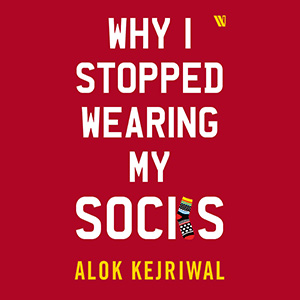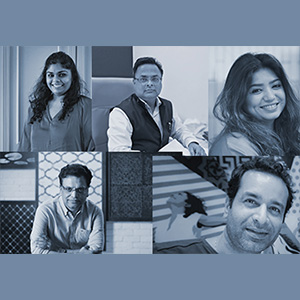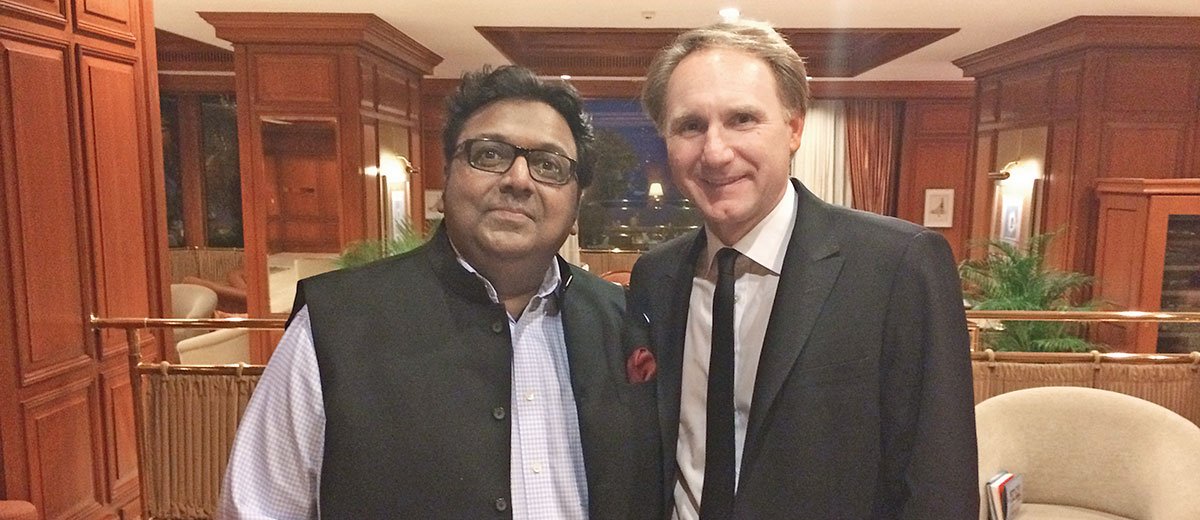
Ahead Of The Game
Most know Alok Kejriwal as an early Indian internet entrepreneur who continues to ride the wave of success in the world of digital start-ups. An inspiration for both young and established entrepreneurs, Kejriwal started Contests2win, an internet-based company that promoted brands through engaging online contests, in 1998. Having survived the dotcom bust, he went on to launch Mobile2win as an SMS voting platform for wildly popular reality shows like ‘Indian Idol’. Then came Games2win in 2006, an online casual gaming venture that he embarked on after noticing his daughters’ interest in online games and which he now heads as CEO.
Born in a Marwari family and brought up by his grandparents at Parel, Mumbai, Alok Kejriwal studied accounting and joined his father’s socks manufacturing business at the age of 21. But even before this, he had acquired some knowledge of enterprise, thanks to the experience gained at his grandfather’s transportation business. In his book titled Why I Stopped Wearing My Socks, penned recently, Kejriwal describes his entrepreneurial journey through a series of humorous, and sometimes emotional, anecdotes, relating to metamorphic moments like the time when he was bullied by a senior government officer, right up to the instance when he was offered a handsome sum of money to exit his own company, Mobile2win. It also details, through concise lessons, the manner in which Kejriwal navigated obstacles, identified solutions to problems encountered first-hand and cracked top-level deals to take his start-ups to new heights. It’s no wonder then that he is regularly invited to speak about his life’s experiences at important events and conferences, including places such as the Wharton and Harvard Business Schools, IIMs and IITs. He also mentors entrepreneurs through Rodinhood, his social network for entrepreneurs.
We bring you a Q&A with the passionate speaker, entrepreneur and author of Why I Stopped Wearing My Socks.
What’s a day in the life of Alok Kejriwal like?
I live a disciplined life. I’m an Art of Living teacher. I wake up in the morning and spend an hour and ten minutes doing my kriya. Then I head to office and work with my product managers and review my Games2win business from 9:00-6:00 pm. I run in the evening. Then I watch YouTube, boxing and TED Talks videos at home to completely erase my mind. Around 10, I read and reply to e-mails.
What was the hardest part about writing Why I Stopped Wearing My Socks?
The hardest part was drawing the line between too much detail and actual knowledge versus making a point. As an entrepreneur, I’m trained to go into the micro details of things. The other part was to not offend people. Honestly, there have been a lot of negative instances in my life that I would have loved to write about. But the nature of the book is completely name, place, who, where, what… I would have had to mention those people, so excluding the bad guys in my life was the second hardest part.
What’s the most important lesson you’ve learnt over the years?
A lesson I cherish and keep talking about is to be completely honest and transparent. There’s nothing worth doing if you can’t be transparent with yourself and your people. The other surprising but oft overlooked fact is that hard work and patience pays. My theory is that it takes at least 20 years to achieve something great. In this ‘get big, get rich’ world, a lot of young people think that success comes fast. But it needs patience and long-lasting effort.
Tell us about your mentors from whom you have learned much along the way?
There’s Cyrus Oshidar of MTV India, who taught me the business of creativity and exaggeration. There’s Sushanto Mitra, my first banker, who helped me raise money and my three co-founders, Ranga, Gopala Krishna (GK) and Oshidar, who taught me everything I needed to know about business. And then, there are my nana and dad, of course … My most precious mentor, however, is Sumant Mandal, who taught me how to scale a business. He runs a VC firm called March Capital and was previously with Clearstone. And how can I not mention my teacher and spiritual guru Sri Sri Ravi Shankar, from whom I learn every day! Finally, every new person I meet is a mentor, no matter who they are or what they do.
Any common traits that you have observed in entrepreneurs you’ve met over the years?
They’re hard working, persistent, diligent, extremely dogged, hard-nosed, almost stubborn, overambitious, driven and never the one to give up. Finally, it’s not always about the money but about the journey. I hate to say this, but entrepreneurs are not exactly nice people to know.
A piece of advice you’d like to share with potential entrepreneurs…
I have a simple tenet: Think of a problem that you’re faced with; then think of solutions—what could be done to solve it. Focus on the bigness of the problem, because if the problem is large then everybody faces it. Of course, sometimes you don’t need to have problems to build businesses; you can build a business out of thin air. It requires you to have deep consumer insight, and you need to know what the world is looking for. That’s the foundation of building a great business. And then, of course, it’s only execution. I believe that an idea, however great it is, is only one per cent of the value of the business when it matures; the remaining 99 per cent is execution.
A start-up myth you’d be glad to debunk…
The greatest start-up myth is that it’s the best way to great rich. Well, start-ups are the best way to get frustrated and lose everything you hoped you’d never lose, including friendships, health and peace of mind. It’s a slow, gradual tapasya you have to bear before you reap the rewards.
What next?
I love what I do; I love my business of gaming; I think this is going to be a huge business in the next 20 years. We’re definitely going to go public and list Games2win as an IPO. I love the business of engagement. I think I’m going to be the typical Marwari who never retires, and hopefully I’ll be gaming all my life.










